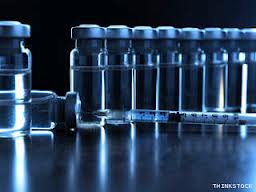First Amendment Bars Pharmaceutical Company Prosecution
December 4, 2012
News and Views on Environmental & Toxic Tort Federal and State Legal Issues and Developments
December 4, 2012
 The Second Circuit yesterday rendered its much-anticipated decision in United States v. Caronia, the most important Food Drug and Cosmetics Act enforcement case pending in the country. Not only did the court’s 2-1 holding determine that the First Amendment bars the criminal prosecution of pharmaceutical manufacturers or their sales representatives for truthful, non-misleading speech promoting the lawful, off-label use of an FDA-approved drug affect criminal FDA enforcement cases, it also has great potential impact on False Claims Act cases.
The Second Circuit yesterday rendered its much-anticipated decision in United States v. Caronia, the most important Food Drug and Cosmetics Act enforcement case pending in the country. Not only did the court’s 2-1 holding determine that the First Amendment bars the criminal prosecution of pharmaceutical manufacturers or their sales representatives for truthful, non-misleading speech promoting the lawful, off-label use of an FDA-approved drug affect criminal FDA enforcement cases, it also has great potential impact on False Claims Act cases.
Stuart Gerson, an Epstein Becker & Geen partner in Washington, D.C., who has defended a number of significant False Claims Act cases (and qui tam cases), opined this morning that "the Caronia decision is revolutionary, dealing the government a very hard blow in its effort to quash all off-label promotion, and incidentally to try to limit off-label use, irrespective of the fact that such use is a lawful matter to be decided by doctors and patients. And that is the point, since such use is lawful, making truthful statements about such use would infringe allowable speech."
According to Gerson, the Second Circuit "read the FDCA in a hyperliteral way, holding that the misbranding provisions of the Food Drug and Cosmetics Act do not prohibit such truthful promotion of an off-label prescription drug that otherwise is approved, and thus avoided having to make what it also held would have been the constitutional determination that blocking such speech would have violated the First Amendment." Caronia adopts a view that pharmaceutical companies and trade associations have attempted to advance for years. Gerson believes that the issue might well reach the Supreme Court.
In any event, Caronia will stand as an important precedent, not only in criminal cases like this one, but in civil fraud cases as well where the government and qui tam relators have argued that off-label promotion is tantamount to false certification and hence a violation of the federal False Claims Act.
 Given the importance of the case, it is likely that rehearing en banc will be sought and, perhaps, a petition filed by the government with the Supreme Court. However, it also may be the government’s strategy to follow a policy of non-acquiescence and litigate the point in other circuits, hoping to create a split. In any event, this is a case that pharmaceutical and medical device companies need to watch closely.
Given the importance of the case, it is likely that rehearing en banc will be sought and, perhaps, a petition filed by the government with the Supreme Court. However, it also may be the government’s strategy to follow a policy of non-acquiescence and litigate the point in other circuits, hoping to create a split. In any event, this is a case that pharmaceutical and medical device companies need to watch closely.